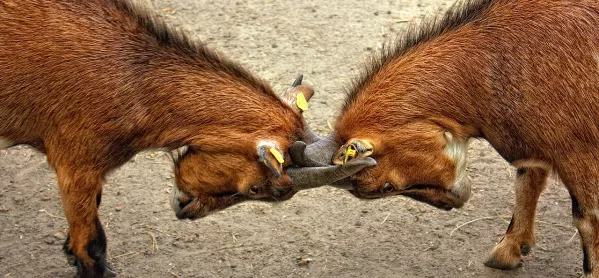- Home
- ‘Decrying the independent sector doesn’t help any child’
‘Decrying the independent sector doesn’t help any child’

“An investment in knowledge always pays the best interest.”
Benjamin Franklin’s aphorism would presumably win support from most in education. While few like to consider education from a financial perspective, or impose fiscal measures to teaching and learning, fewer can deny the constraints that the public purse - whether bulging or bare - places on schools. Independent schools are not independent from that.
Look at recent stories - the teacher pension contribution bombshell, the search for détente over teacher pay, local authority strictures on music instruction or sport, private finance for school buildings, FE restructuring or endless shadow boxing over the true costs of HE. Pull back and consider household budgets battling the cost of living, or overall council funding, or the ever-present elephant prompting the question of whether Brexit constitutes a great deal or a financial calamity. Try as one might, there is no escaping the bottom line.
Of course, one would expect the independent sector to say so. The narrative about independent schools is rarely about their autonomy, their subject choice, their varied curricula or their extra-curricular focus. It is usually about money; whether in terms of the fees paid by parents, the level of means-testing fee assistance available, or the place of schools in the UK’s tax system.
Quick read: Private schools to help more children in care
University admissions: Just 8 ‘top schools’ win more Oxbridge places than 2,900 others
Does this exam system favour independent schools? Head says system is unfair to all
This was highlighted recently by a report from 10 of Edinburgh’s independent schools, which looked to measure their economic and fiscal contribution to the city. It looked at the pupils accommodated, the teaching and support staff employed, the supply chains supported and the gross value added to the nation’s and capital’s economies. Half of the coverage of the report accentuated the positive - “Report finds Edinburgh Independent Schools make economic contribution of £125 million” - while others looked at the challenges ahead as a portent of doom, with headlines such as: “Economists issue dire warning over future of Edinburgh private schools.”
This illustrates perfectly the danger of attaching a figure to the contribution that independent schools make. To respond to suggestions of tax “breaks” or profiting from education, by detailing the exchequer contribution of schools is to reduce the education process to a balance sheet. To defend against such claims by pointing out that schools (and parents) also pay their rates and taxes, and are tested to a unique degree over the public benefit not-for-profit charitable status requires, is seen as special pleading. It will never benefit the supporters or detractors of independent education to reduce matters in this way.
The binary Scottish school system is a reality, and the independent sector has been part of it for centuries. Government can, and does, seek to challenge them by calling for “parity” between their treatment and that of state schools - the current justification for a proposed five-fold increase in business rates. The increase has not been asked of any of the other 10,000 educational charities in Scotland (even those that also charge fees) or the remaining 14,000 bodies that receive relief. The charity regulator does not like it either. However, that same political debate will never support parity working both ways, for instance by extending full VAT exemption to education in independent schools, or requiring that public funding “follows the child” between the years of five and 18, just as it does both before and after.
Independent schools are not isolated from the chill winds of the economy, or from the inexcusable uncertainties of EU withdrawal. They, like all other educators, are braced for a powerful punch from the hike in employer contributions to teacher pensions (money which, once again, is derived from parental income, not from taxation). They will do their best to weather these blows, deliver the biggest per capita means-tested widening participation of any UK schools, meet additional support needs, and deliver the best individual outcomes for young people in a country that aspires to high attainment.
Wishing them ill in doing so, or treating them as a source of (non-existent) endless funds, can only load more costs on the taxpayer, and will not improve the life chances of a single pupil. The idea that independent school pupils’ and parents’ absence from the state sector is a drain on the latter’s progress is more offensive to the 95 per cent committed to the state sector even than it is to the 5 per cent that have chosen the alternative.
A country like ours would be better placed making the most of the social capital it has - rather than letting the ideologically pure be the enemy of the educationally good.
John Edward is director of the Scottish Council of Independent Schools
Keep reading for just £1 per month
You've reached your limit of free articles this month. Subscribe for £1 per month for three months and get:
- Unlimited access to all Tes magazine content
- Exclusive subscriber-only stories
- Award-winning email newsletters



